Gaza and Israel mark seventh day of escalation with no immediate truce in sight
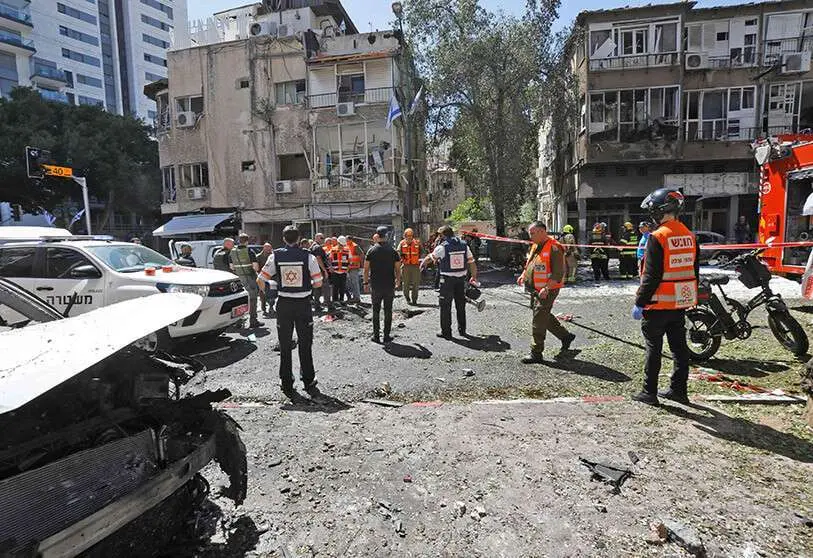
Early Monday morning Israeli bombardments were also of high intensity on the Strip, for the second consecutive day and after one of the worst offensives that killed 42 civilian Palestinians in Gaza City on Sunday.
Israeli aircraft attacked the homes of senior members of the Islamist Hamas movement, and 15 kilometers of subway tunnel network, known as "Metro", in which it claims the top commanders of the Islamist militias are hiding.
At least 197 Palestinians, including 58 minors and 34 women, and ten people in Israel, two of them minors, have been killed since the fighting began a week ago today.
With truce negotiations stalled, images of explosions and intense rounds of shelling once again lit up the skies over the blockaded Palestinian enclave in the early hours of the morning. 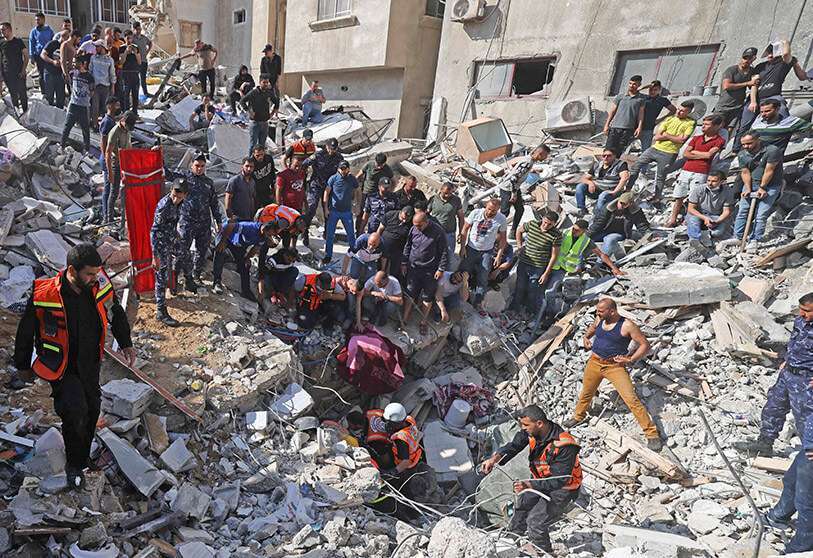
The strip's militias, led by Hamas and Islamic Jihad, continued firing rockets into Israeli communities near Gaza throughout the night.
As part of the Israeli operation early this morning, 54 fighters carried out a third round of bombing raids on 35 militia targets in the subway tunnel system, the army said.
It also struck nine additional residences of senior Hamas officials, the main targets of the Israeli offensives, which in turn are taking a heavy civilian toll on a shattered Gaza Strip.
Gaza and Israel lived this Sunday the seventh day of their worst escalation of war since 2014 with an almost constant exchange of fire between the militias and the Israeli army, without official details of progress towards a possible truce that the U.S. and other actors seek to promote.
After an early morning of intense Israeli retaliatory bombardment of Gaza and another volley of rockets launched by the militias towards Tel Aviv and the center of the country, the level of clashes was relatively lower during the day, but the anti-aircraft alarms continued to sound in Israeli towns close to Gaza, and the Israeli Army continued with attacks against Hamas positions.
At the same time, despite the presence of U.S. President Joe Biden's envoy Hady Amr, who is seeking to contain the escalation, there were no reports of progress towards a cease-fire to end the escalation that erupted on Monday and brought the region back to a major crisis.

In Gaza, the death toll since the start of hostilities rose today to at least 197, including 58 minors and 34 women, and the number of wounded exceeds 1,235, the Health Ministry reported.
Among the dead are 42 civilians killed in the early hours of the morning after heavy Israeli shelling in the Rimal neighborhood, where rescue efforts continued today for dozens of people still trapped in the rubble of five destroyed buildings.
In Israel, meanwhile, there were no casualties today. So far, 10 people have died. Of these, eight - including two minors - died from rocket hits, and two after falling while running for shelter. Nearly 300 Israelis were also injured.
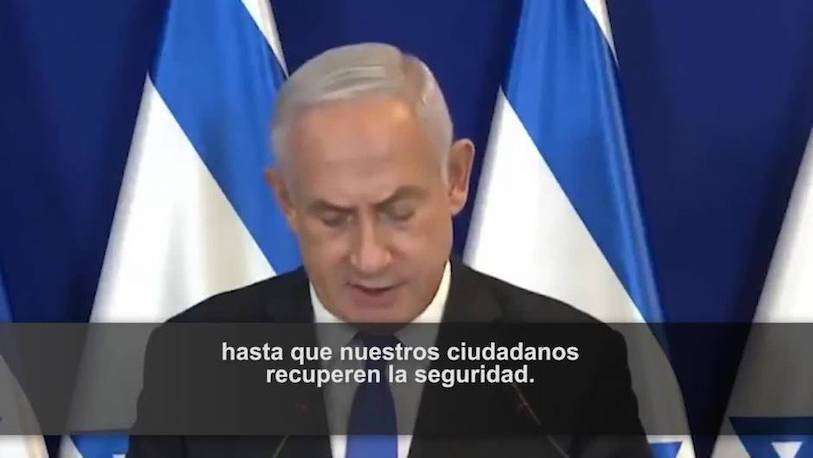
Israeli Prime Minister Benjamin Netanyahu also urged today to continue retaliatory strikes against the Islamist groups Hamas and Islamic Jihad, which have launched more than 3,100 rockets since the beginning of the week.
Of these, 450 failed to land inside the enclave, while the Iron Dome anti-aircraft system intercepted around 1,210.
According to the Israeli military, this is the heaviest wave of fire from Gaza the country has ever experienced in its history, with a higher percentage than in the 2014, 2012 and 2008-09 wars. The military also estimates it has killed at least 75 Hamas militiamen and "dozens" of Islamic Jihad in multiple strikes.
"Our campaign against terrorist organizations continues in full force," Netanyahu said today, remarking that Israel is demanding that Hamas pay "very high prices for its intolerable aggression."
He added that the armed forces "have carried out attacks against more than 1,500 targets in recent days" to "restore tranquility and security" for Israelis. He further warned that the current campaign "will still take time."
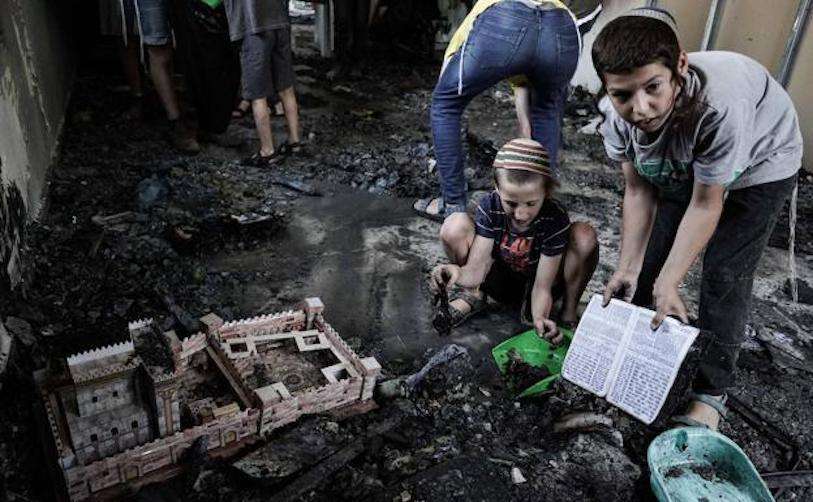
The day was also marked by increasing traces of destruction in Gaza, where material damage and the rubble landscape of partially or completely demolished buildings is the tonic.
The bombardments "have destroyed 76 buildings", some 725 homes "have suffered major damage" and another 4,134 "minor damage", according to data from the UN Office for the Coordination of Humanitarian Affairs (OCHA). According to a report, schools, roads and other infrastructure have also been damaged.
At the same time, the UN Relief and Works Agency for Palestine Refugees in the Near East (UNRWA) reported today that more than 38,000 people took refuge in their schools after evacuating their homes for fear of air strikes.
Egypt also decided to open this weekend the Rafah crossing, which connects Gaza with the Egyptian Sinai, to transfer injured Palestinians to its hospitals by ambulance, while Spain and European countries are trying to evacuate Palestinians with dual nationality who live in the enclave and asked to obtain an exit permit.
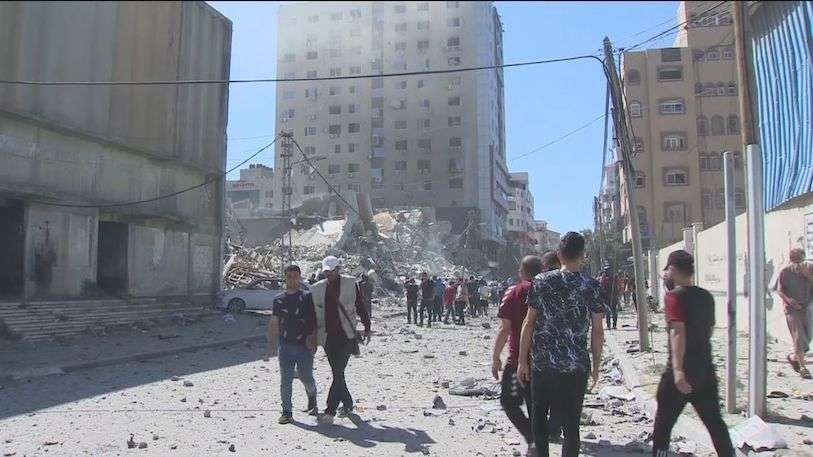
The day also coincided with a new meeting of the Security Council to address the situation, where most powers demanded an immediate end to the hostilities, although the support of the US for the Israeli thesis prevented a common message to show unity.
UN Secretary General António Guterres stressed that the first priority is to stop the violence as soon as possible, but so far the council members have not been able to agree on a joint statement.
According to diplomatic sources, the U.S. has put the brakes on texts proposed by other countries, arguing that they would be counterproductive and that it is better to give diplomacy some more time.
This Monday, in his round of meetings in Israel and the Palestinian territories, Biden's envoy to the region will seek ways to calm the situation with Palestinian President Mahmoud Abbas.
Still, Abbas only rules over parts of the West Bank and has no direct control in Gaza, and his ability to intercede since the start of the escalation has been residual and has not calmed tensions with Hamas. Nor does the US have direct contact with the Islamist movement, which it considers a terrorist organization.
Above all, although efforts to curb the violence continue with actors such as Egypt, Jordan and the UN itself, the prospects of a truce do not seem immediate for the time being.








